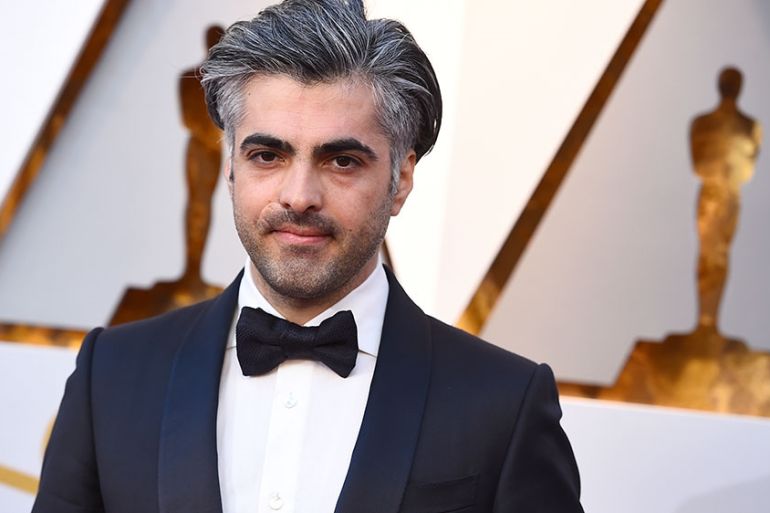TV academies urge Pompeo to allow entry for Syrian documentarians
Academies call on Pompeo to waive restrictions for documentarians, journalists from countries under travel ban.

The leaders of the two leading United States television academies have called on Secretary of State Mike Pompeo to waive the Trump administration’s travel ban on residents of certain predominantly Muslim countries in order to allow award-winning filmmakers to attend awards ceremonies scheduled for later this spring.
In a rare joint letter released Tuesday, the heads of the National Academy of Television Arts & Sciences and the Television Academy called on Pompeo to waive the restrictions for journalists and documentarians up for the coveted annual awards.
Keep reading
list of 3 itemsHollywood mogul Harvey Weinstein reaches $25m deal with accusers
Why Bollywood film Panipat has angered Afghans
The academies pointed to the experience of Syrian filmmaker Feras Fayyad, winner of a 2018 Emmy award for the film, Last Men in Aleppo, who last month was denied entry when he applied for a visa to travel to Los Angeles to accept an award for his latest project, The Cave.
The film, about a paediatrician and manager of an underground hospital in war-torn Syria, was nominated for a Best Documentary Oscar on Monday.
“It appears that these visas may have been denied solely based on applicant nationality,” the letter, signed by the chairmen and CEOs of the academies, said.
“The rejection of Mr Fayyad’s application echoes the experience reported by other documentarians who have been denied entry to the United States while seeking to attend Emmy award ceremonies at which their work has been nominated.”
The most recent iteration of the Trump administration’s travel ban includes restrictions on travel from five majority-Muslim countries, including Iran, Libya, Somalia, Syria and Yemen. There are also some restrictions on certain individuals from Venezuela and North Korea.
We and the @TelevisionAcad proudly call upon the @StateDept to permit @FerasFayyad and other award-nominated documentarians to be properly recognized for their work. #Emmys
Full letter to @SecPompeo: https://t.co/LT5gXnZWKe pic.twitter.com/uOQV6mF4qv
— News & Documentary Emmys (@newsemmys) January 14, 2020
In a statement to Variety Magazine, Fayyad’s spokesman said the filmmaker was denied entry to the US by its embassy in Copenhagen. He said he had hoped to attend screenings of The Cave and attend other industry gatherings in the coming weeks.
Fayyad’s work, along with that of cinematographers Muhammed Khair Al Shami, Ammar Sulaiman and Mohammed Eyad, focuses largely on current events in Syria and the political transformation of the Arab world. His work led to his imprisonment by the government of Bashar al-Assad in 2011.
In their letter to Pompeo, the academy chiefs said it was Fayyad’s nationality and his on-the-ground access that makes his work so compelling and important to increasing the American public’s understand of the Middle East and US foreign policy in the region.
“We urge the State Department to acknowledge the importance of these productions to informing the American television audience and building global awareness, and to waive restrictions that prevent their rightful recognition,” the letter said.
“The impact of the work and the well-deserved respect of our community handily outweigh blanket policy positions that err in overlooking such individual merit.”
The US State Department did not immediately respond to Al Jazeera’s request for comment.